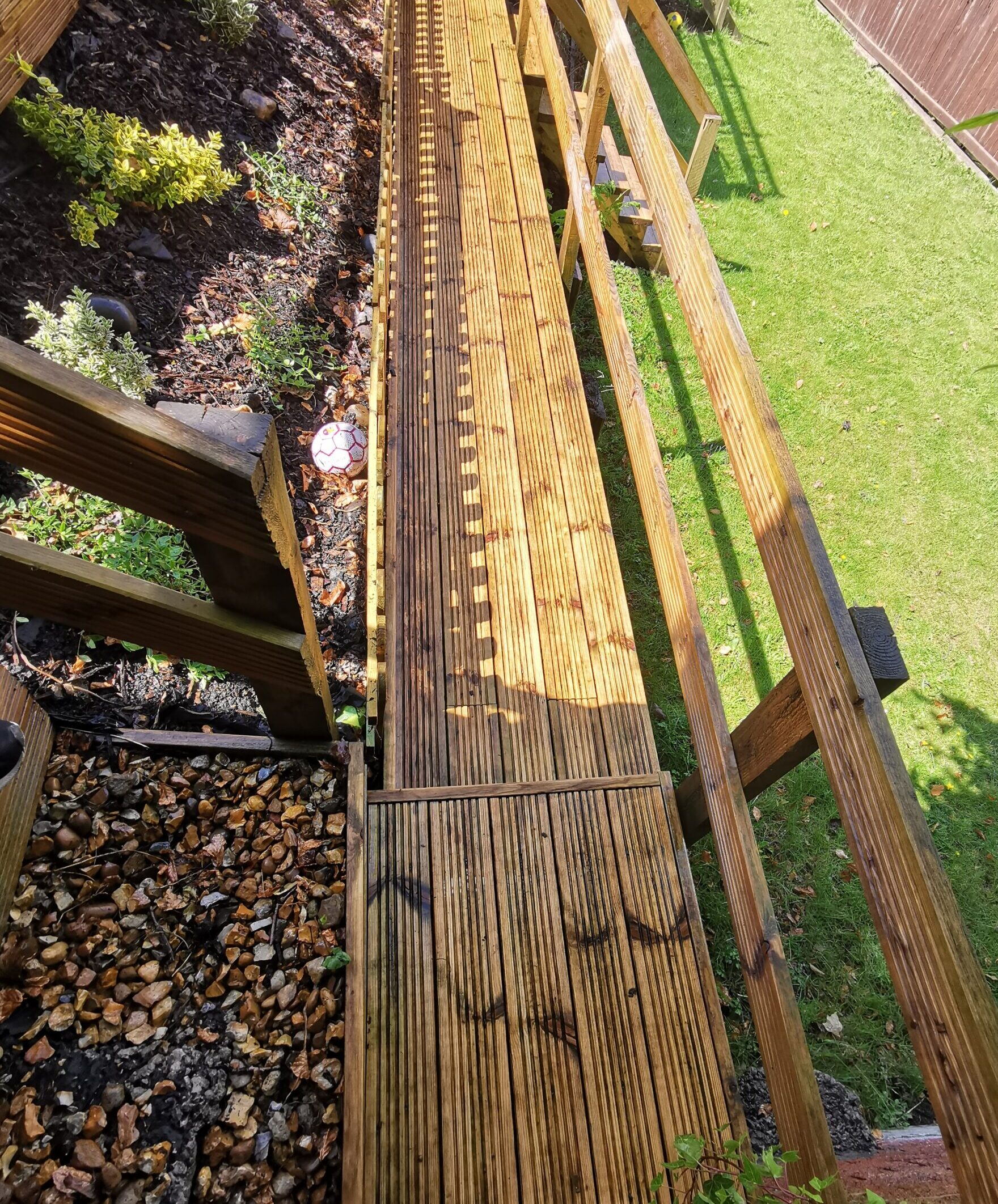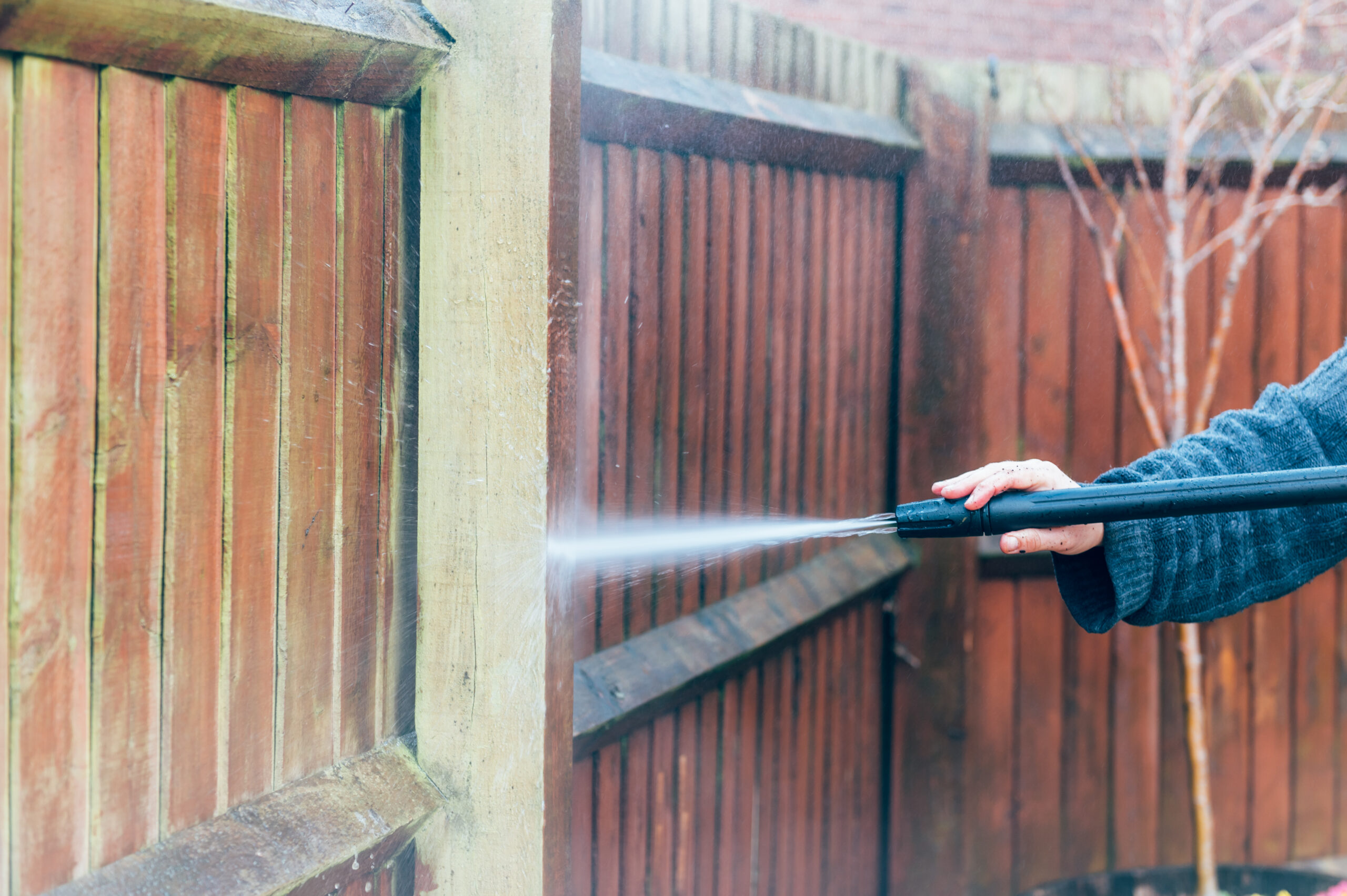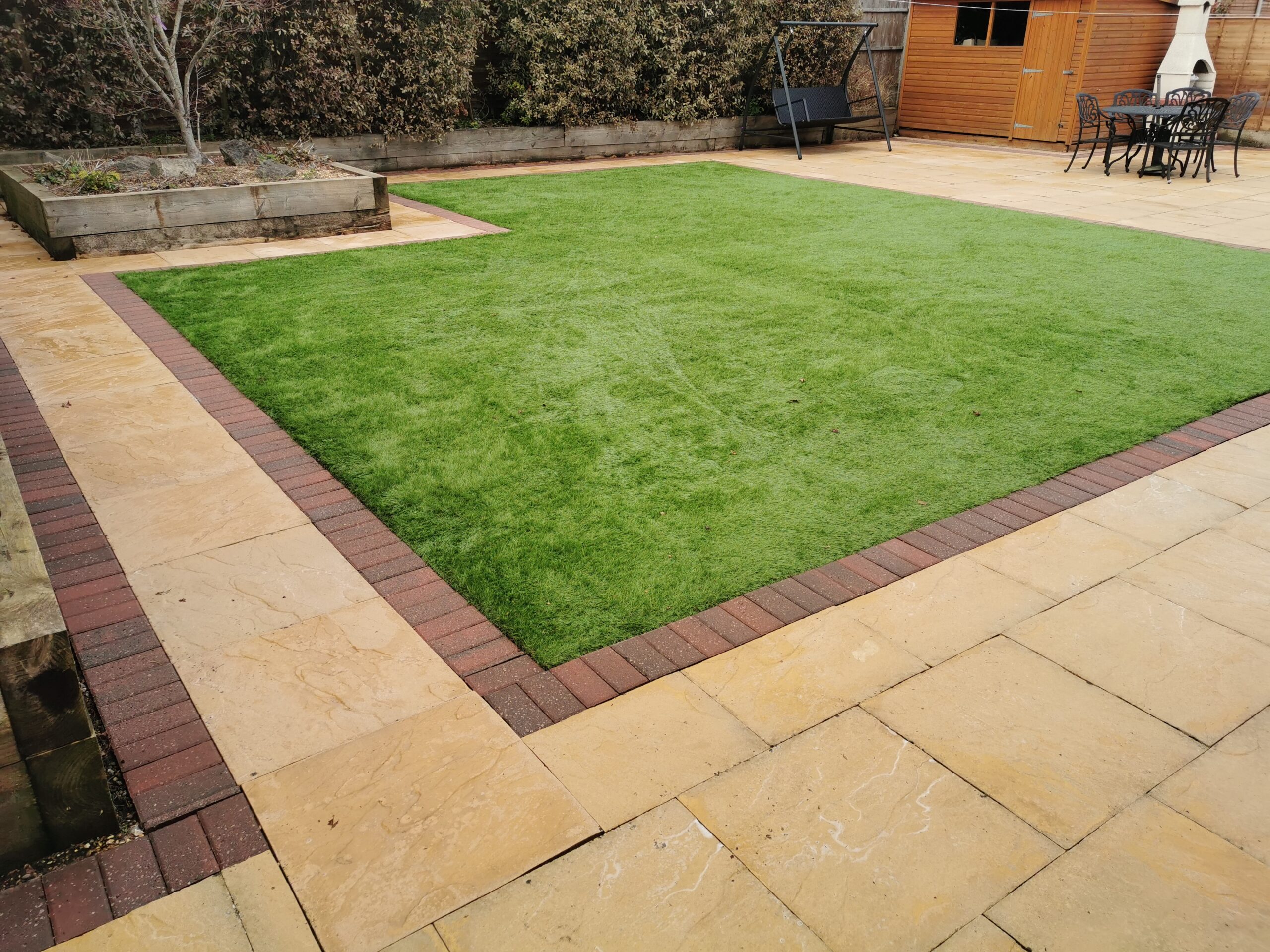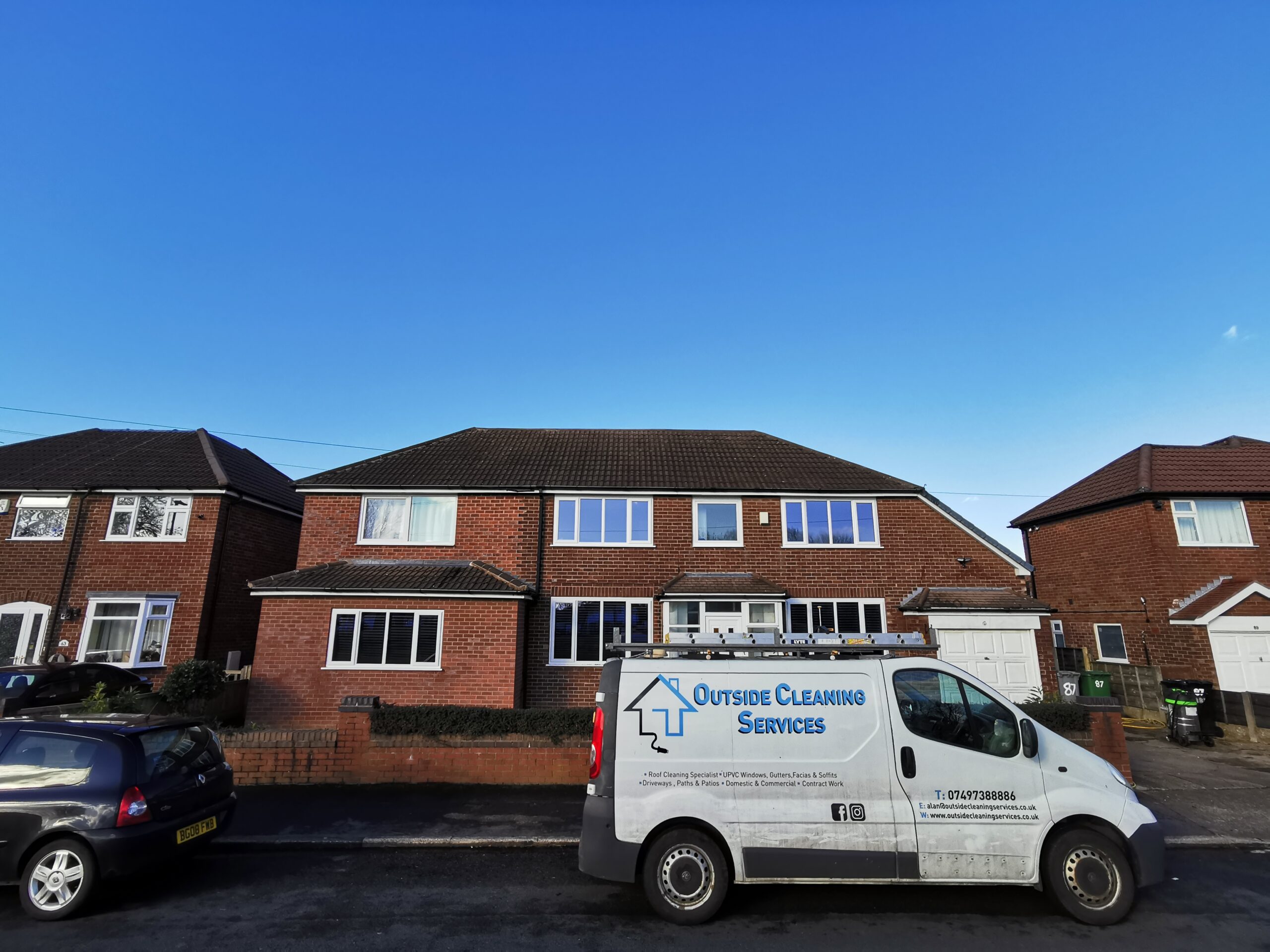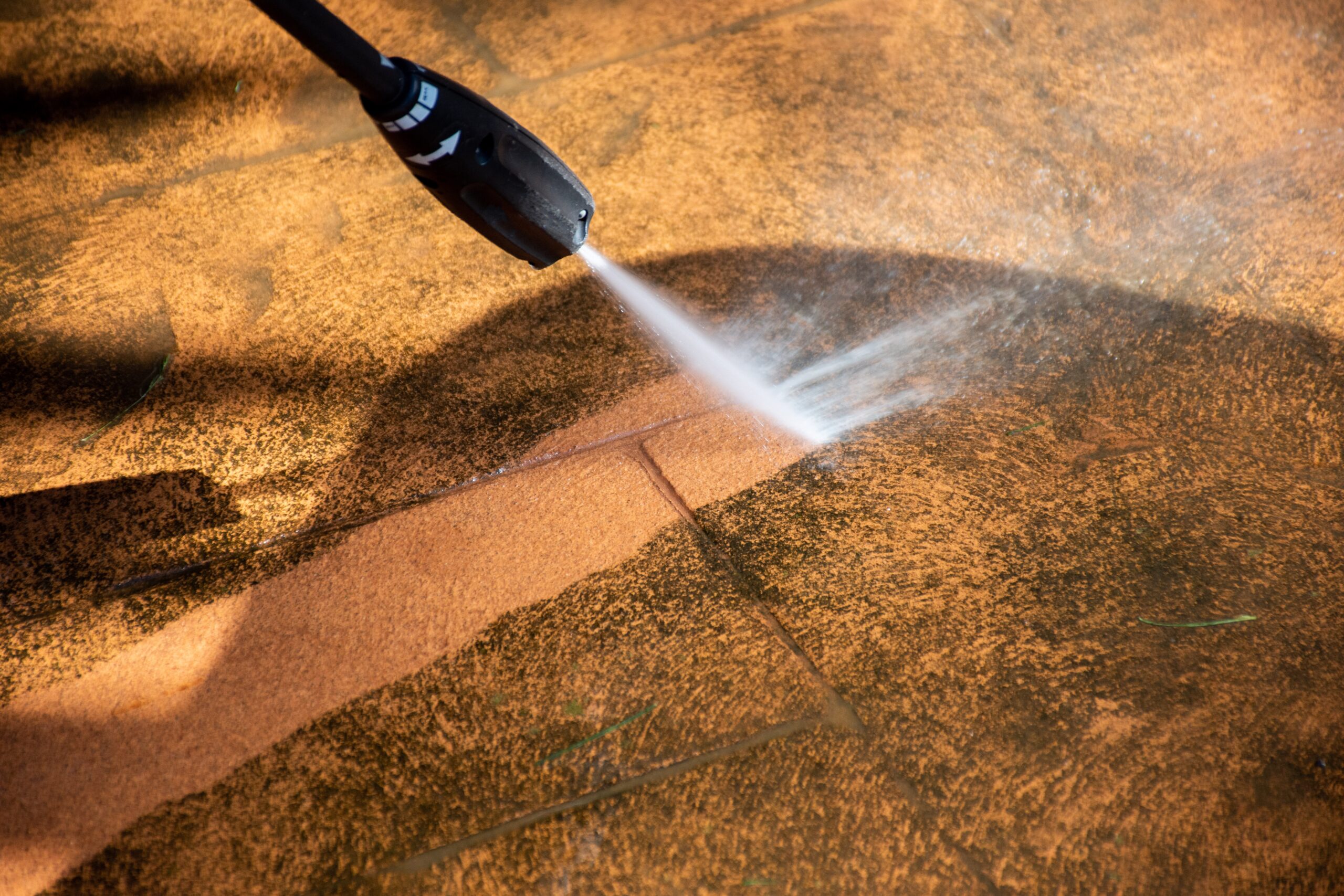Patio Cleaning | Enjoy Cleanliness
Patio, paths and driveways are integral components of residential and commercial properties, providing access, functionality, and enhancing the overall aesthetic appeal. However, over time, these surfaces are exposed to various environmental elements and foot traffic, leading to the accumulation of dirt, debris, algae, mold, and stains. Regular cleaning of patios, paths and driveways is essential to preserve their longevity, maintain their appearance, and ensure safety.
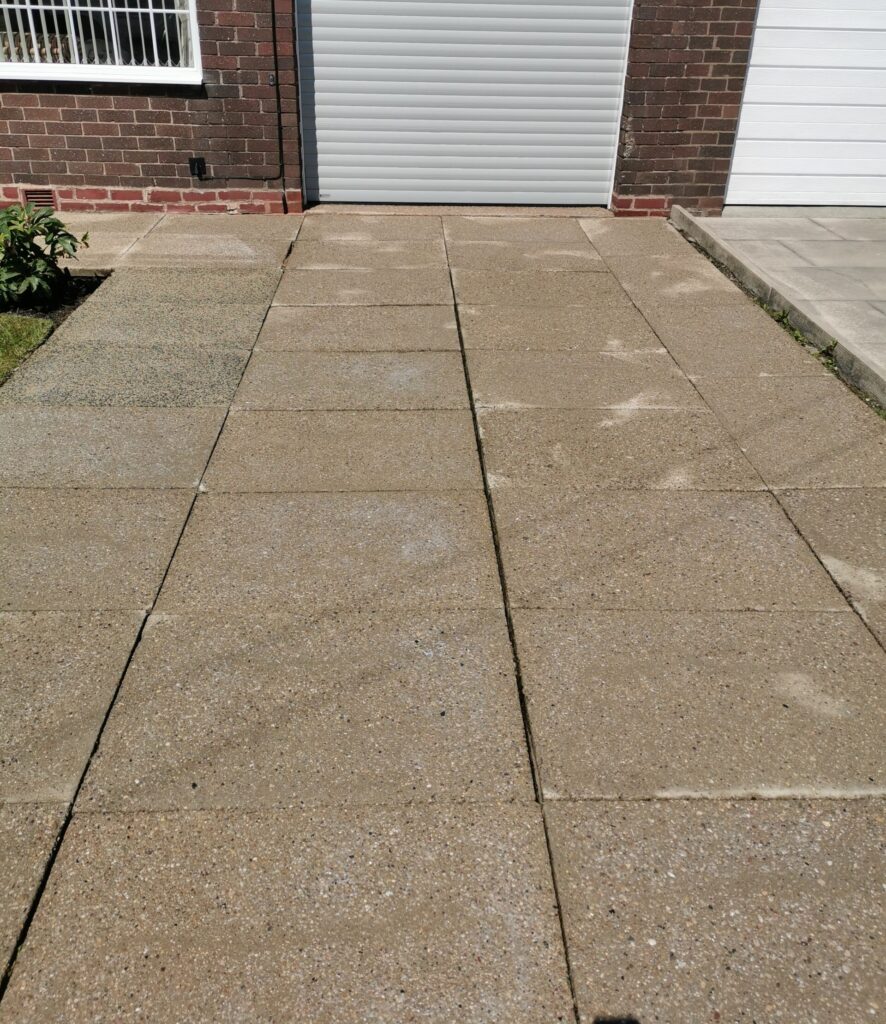
Environmental Impact on Surfaces
Weathering Effects
The impact of rain, snow, heat, and UV rays on paths, patios, and driveways, lead to erosion and degradation of surface materials
Rain
Rainwater can seep into porous surfaces like concrete and asphalt, leading to expansion and contraction as the water freezes and thaws. This process, known as freeze-thaw cycles, can cause cracks and weakening of the surface over time.
Snow
Similar to rain, snow can contribute to freeze-thaw cycles, leading to surface damage. Additionally, snow removal practices, such as shoveling or using snowplows, can also cause abrasion and wear on surfaces.
Heat
High temperatures can accelerate the breakdown of certain materials, especially those exposed to direct sunlight. Heat can cause the expansion of materials, leading to cracking or warping.
UV Rays
Ultraviolet (UV) radiation from the sun can cause photodegradation, breaking down surface materials by breaking chemical bonds and leading to fading, chalking, and surface brittleness.
To mitigate the effects of weathering, it’s essential to use durable and weather-resistant materials for outdoor surfaces. Regular maintenance and protective coatings can help prolong the life of these surfaces.
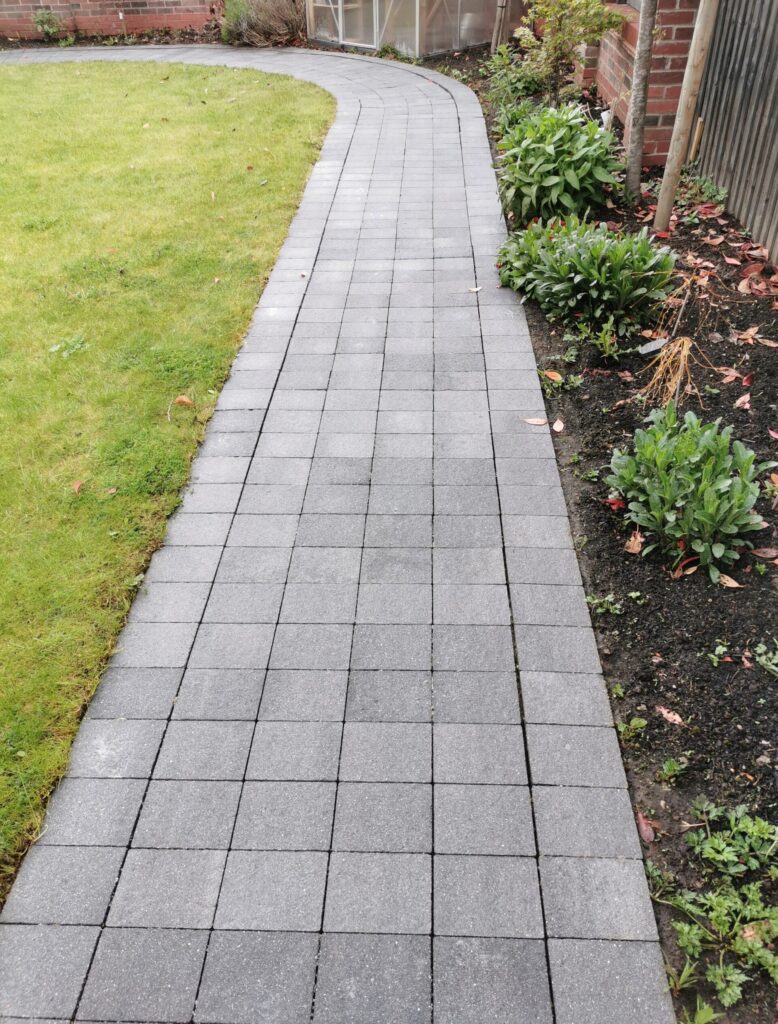
Aesthetic Appeal and Property Value
Curb Appeal
Curb appeal plays a significant role in shaping a property’s overall impression. A clean and well-maintained exterior enhances the attractiveness of a home, making it more inviting to guests and passersby. A visually appealing landscape, including clean paths, patios, and driveways, sets the tone for the entire property and elevates its desirability.
Visual Attraction
Patio, path and driveway are essential elements of a property’s landscape. These surfaces contribute to the overall visual appeal, complementing the architecture and design of the house. When these areas are clean and presentable, they create a cohesive and harmonious outdoor space that enhances the beauty of the property.
Impact on Property Value
The condition of outdoor spaces can significantly impact a property’s value. Potential buyers are more likely to be drawn to a property that boasts clean and well-kept paths, patios, and driveways. Regular cleaning demonstrates that the property has been cared for and maintained, which can justify a higher selling price. Therefore, investing in routine cleaning can be viewed as an investment that yields returns in the form of increased property value.
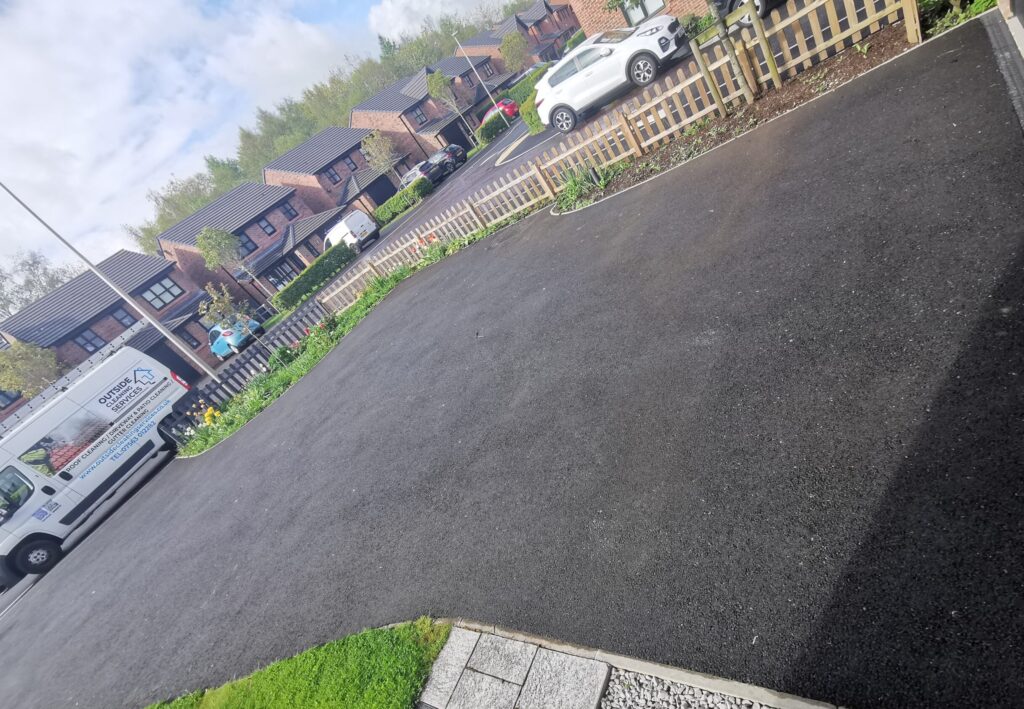
Safety and Preventing Accidents
Slip and Fall Hazards
Safety is a paramount concern for property owners. Slippery surfaces caused by algae, mold, and other contaminants present a real hazard for both residents and visitors. Regular cleaning of paths, patios, and driveways ensures the removal of these potential slip and fall hazards, reducing the risk of accidents and injuries on the property.
Vehicular Safety
Driveways are high-traffic areas that require particular attention to safety. Accumulated dirt, oil stains, and debris can create hazardous conditions for vehicles, leading to accidents or damage. Keeping driveways clean ensures safe vehicular movement and minimizes the risk of accidents, thereby safeguarding both property occupants and their vehicles.
Liability Concerns
Property owners have a responsibility to ensure that their premises are safe for visitors, residents, or employees. Failure to address slip and fall hazards or maintain clean driveways can lead to significant liability risks. Here’s how regular cleaning can help mitigate these risks:
Preventing accidents
Regular cleaning reduces slip and fall hazards, decreasing the likelihood of accidents and injuries on the property.
Demonstrating duty of care
By implementing a cleaning schedule, property owners demonstrate their commitment to providing a safe environment for anyone using the property.
Mitigating negligence claims
In case of accidents, property owners who can demonstrate that they took reasonable steps to maintain a clean and safe environment are less likely to face negligence claims successfully.
Compliance with regulations
Some jurisdictions may have specific regulations or standards regarding property maintenance and cleanliness. Regular cleaning ensures compliance with these rules, reducing liability risks.
Insurance requirements
Insurance policies often require property owners to maintain a safe environment. Regular cleaning can help fulfill these requirements, ensuring adequate coverage in case of incidents.
Reputation management
Keeping the property clean and safe enhances the reputation of the property owner, which can be crucial in attracting tenants, customers, or visitors.
Different Types of Cleaning Methods
Pressure washing
Pressure washing is a popular method for cleaning large surfaces efficiently. The high-pressure water stream effectively removes dirt, grime, and stains. However, it’s essential to use the appropriate pressure levels and nozzles to avoid damage to sensitive materials like wood or pavers. Additionally, the forceful nature of pressure washing may not be suitable for older or fragile surfaces.
Chemical Cleaning
Chemical cleaning involves using specialized products to break down and remove tough stains and contaminants. While this method can be highly effective, it is vital to choose environmentally friendly products to minimize ecological impact. Careful application and proper disposal of chemicals are crucial to ensure safe cleaning practices.
Establishing a Cleaning Routine
To maintain the longevity and aesthetic appeal of patios, paths and driveways, setting up a regular cleaning schedule is essential. Establishing a routine ensures that cleaning becomes a habit, preventing the accumulation of dirt and grime and reducing the effort required for future cleaning sessions.
Preventing Dirt and Grime Buildup
Taking preemptive measures can significantly reduce the frequency and intensity of cleaning required. Utilizing doormats at entry points, trimming nearby vegetation, and addressing spills or stains promptly can prevent excessive dirt and grime buildup on surfaces, simplifying the cleaning process.
Tailoring Cleaning Practices
Different seasons bring varying challenges for outdoor surfaces. For example, autumn may require clearing fallen leaves and debris, while spring might necessitate more intense cleaning after winter weather. Tailoring cleaning practices based on seasonal variations ensures that surfaces remain in optimal condition throughout the year.
Environmentally Friendly Cleaning Practices
As environmental consciousness grows, using eco-friendly cleaning products has become imperative. Eco-friendly cleaning products effectively remove dirt and stains without harmful chemical residues, protecting both the environment and the health of those residing on the property.
Minimizing Water Usage during Cleaning
Water conservation is crucial, particularly in regions prone to water scarcity. During the cleaning process, minimizing water usage can be achieved by using efficient cleaning methods and tools. Additionally, capturing and reusing rainwater for cleaning purposes is a sustainable practice that helps preserve natural resources.
Integrating Green Practices into Cleaning Routines
Sustainable maintenance involves adopting environmentally friendly practices in everyday cleaning routines. From using energy-efficient equipment to employing non-toxic cleaning agents, integrating green practices ensures a positive impact on the environment while preserving the beauty and longevity of outdoor surfaces.
Conclusion
Patios, paths and driveways are vital elements of any property, requiring regular cleaning to maintain their longevity, aesthetics, and safety. Through this comprehensive analysis, it becomes evident that regular cleaning is an investment that yields numerous benefits. Preserving the structural integrity, enhancing curb appeal, ensuring safety, and increasing property value are just a few of the advantages of maintaining clean and well-kept surfaces. Whether through DIY efforts or the assistance of professional cleaning services, regular maintenance is the key to enjoying the full potential of these essential outdoor spaces.

